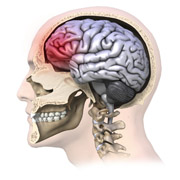Research and Innovation, UNL Office of

Center for Brain, Biology, and Behavior: Faculty Publications
Document Type
Article
Date of this Version
4-17-2019
Citation
2019 The Authors. Developmental Science Published by John Wiley & Sons Ltd.
Abstract
Childhood poverty has been associated with structural and functional alterations in the developing brain. However, poverty does not alter brain development directly, but acts through associated biological or psychosocial risk factors (e.g. malnutrition, family conflict). Yet few studies have investigated risk factors in the context of infant neurodevelopment, and none have done so in low‐resource settings such as Bangladesh, where children are exposed to multiple, severe biological and psychosocial hazards. In this feasibility and pilot study, usable resting‐state fMRI data were acquired in infants from extremely poor (n = 16) and (relatively) more affluent (n = 16) families in Dhaka, Bangladesh. Whole‐brain intrinsic functional connectivity (iFC) was estimated using bilateral seeds in the amygdala, where iFC has shown susceptibility to early life stress, and in sensory areas, which have exhibited less susceptibility to early life hazards. Biological and psychosocial risk factors were examined for associations with iFC. Three resting‐state networks were identified in within‐group brain maps: medial temporal/striatal, visual, and auditory networks. Infants from extremely poor families compared with those from more affluent families exhibited greater (i.e. less negative) iFC in precuneus for amygdala seeds; however, no group differences in iFC were observed for sensory area seeds. Height‐for‐age, a proxy for malnutrition/infection, was not associated with amygdala/precuneus iFC, whereas prenatal family conflict was positively correlated. Findings suggest that it is feasible to conduct infant fMRI studies in low‐resource settings. Challenges and practical steps for successful implementations are discussed.
Included in
Behavior and Behavior Mechanisms Commons, Nervous System Commons, Other Analytical, Diagnostic and Therapeutic Techniques and Equipment Commons, Other Neuroscience and Neurobiology Commons, Other Psychiatry and Psychology Commons, Rehabilitation and Therapy Commons, Sports Sciences Commons


Comments
Developmental Science. 2019;22:e12841. | 1 of 17 https://doi.org/10.1111/desc.12841 wileyonlinelibrary.com/journal/des